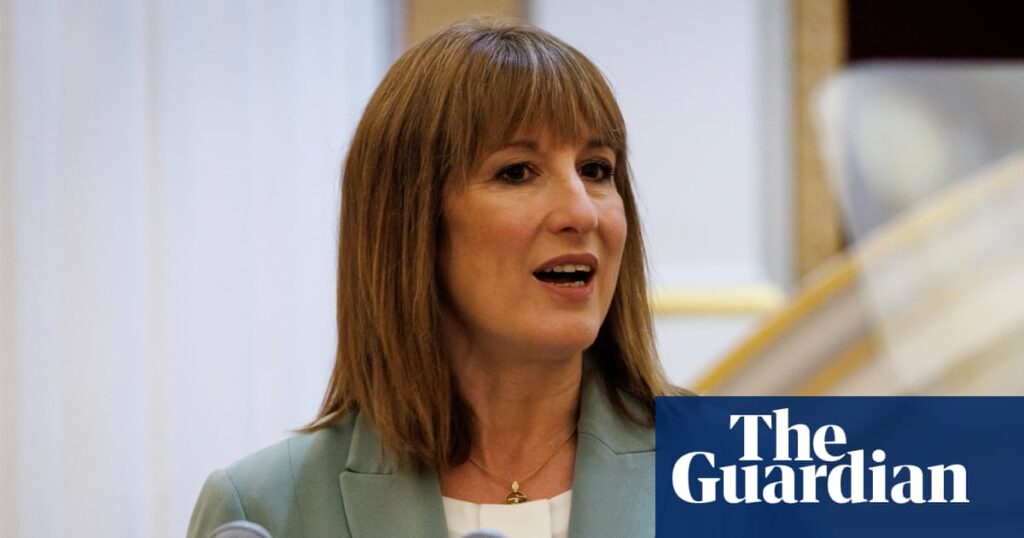The UK government borrowed more than expected in June amid pressure on the chancellor, Rachel Reeves, to repair the public finances.
Figures from the Office for National Statistics (ONS) show public sector net borrowing rose to £20.7bn. This was £6.6bn higher than the same month a year earlier and the second-highest June borrowing figure since monthly records began in 1993. City economists had forecast borrowing to increase to £16.5bn.
The ONS said the escalating cost of providing public services and a large increase in servicing the government’s outstanding debts outstripped rising income from taxes and national insurance contributions.
Interest payable on central government debt rose by £8.4bn to £16.4bn from a year earlier, the second-highest June level on records back to 1997, driven by higher index-linked gilt costs after a rise in the retail price index measure of inflation.
It comes as Reeves prepares for a tough autumn budget amid mounting speculation over the need for large tax rises to cover a multibillion-pound shortfall in the public finances after the government’s high-stakes welfare U-turn earlier this month.
Ministers have warned of “financial consequences” after the backtracking on disability benefits and winter fuel payments for pensioners, which will cost more than £6bn.
Alongside a sluggish economic outlook and possible downgrade in productivity forecasts from the Office for Budget Responsibility at the autumn budget, economists have warned Reeves could face a £30bn shortfall against her fiscal rules.
The UK economy shrank for two consecutive months in April and May, while unemployment and inflation have risen, as businesses and households come under pressure from tax rises, elevated borrowing costs, and global uncertainty amid Donald Trump’s trade war.
Reeves has faced growing demands from Labour backbenchers, unions and the former party leader Neil Kinnock to consider introducing a wealth tax. However, the chancellor has so far sought to keep her options open while pushing to reassure business leaders that her priority remains driving up economic growth.
The Institute for Fiscal Studies said on Monday there was a “strong case” for the chancellor to tweak her self-imposed rule, which requires day-to-day spending to be matched by receipts by the fifth year of official forecasts.
after newsletter promotion
Darren Jones, the chief secretary to the Treasury, said the government was “committed to tough fiscal rules” ensuring that it did not borrow for day-to-day spending and to get debt dow as a share of the economy.
He added: “This commitment to economic stability means we can get on with investing in Britain’s renewal, including fixing our NHS, strengthening our national defence and building hundreds of thousands of affordable homes through our plan for change.”
Mel Stride, the shadow chancellor, said: “Rachel Reeves is spending money she doesn’t have. Debt interest already costs taxpayers £100bn a year – almost double the defence budget – and it’s forecast to rise to £130bn on Labour’s watch.
“Labour’s jobs tax and reckless borrowing is killing growth and fuelling inflation – paving the way for more tax hikes and more borrowing in the autumn. Make no mistake – working families will pay the price for Labour’s failure and costly U-turns.”
According to the latest snapshot, public sector net debt, the sum of every annual borrowing figure, was estimated at 96.3% of GDP, one of its highest levels since the 1960s.


